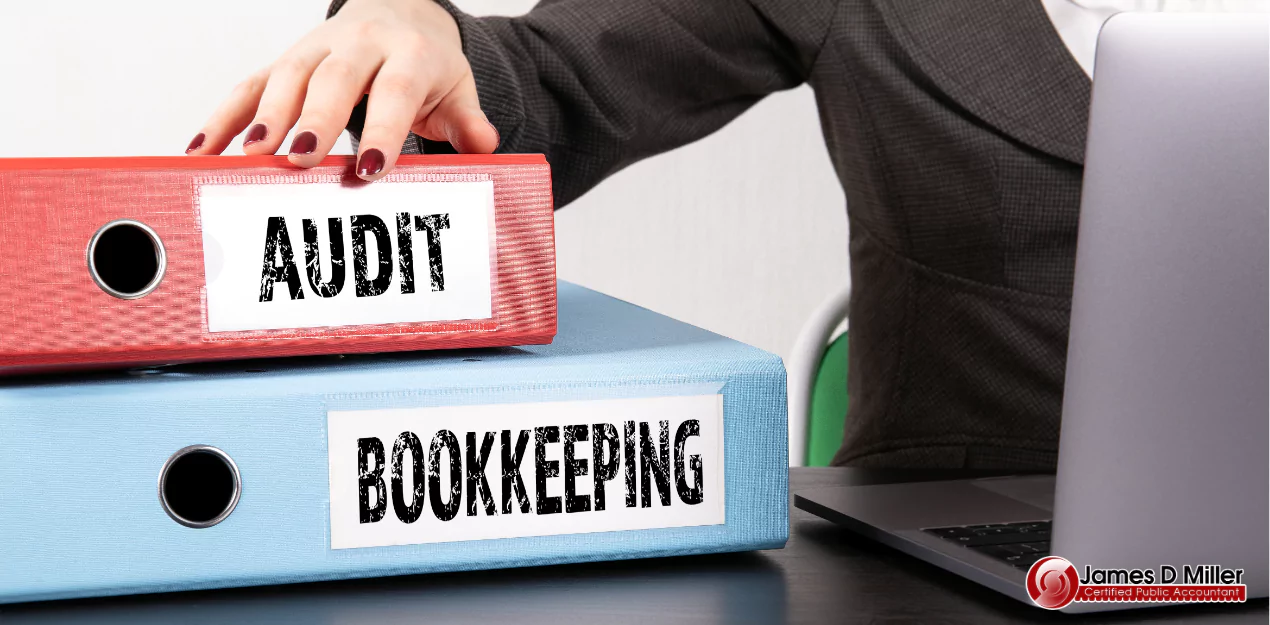Bookkeeping for realtors may not sound as exciting as closing your first deal, but it’s one of the most important habits you can develop as a new real estate agent. Good bookkeeping helps you track your income, manage expenses, prepare for taxes, and see exactly how your business is performing.
At James D. Miller, CPA, we’ve seen how the right bookkeeping system can save real estate professionals time, money, and stress—especially during that critical first year in business. Here’s how to get started.
1. Keep Business and Personal Finances Separate
One of the first rules of bookkeeping is to open a separate bank account for your real estate business. This makes it easier to:
- Track income and expenses
- Avoid mixing personal and business purchases
- Provide clean records if you’re ever audited
A business credit card can also help you manage cash flow and track expenses automatically.
2. Choose the Right Bookkeeping Method
You’ll need to decide between:
- Cash basis accounting: Record income when you receive it and expenses when you pay them.
- Accrual basis accounting: Record income when earned and expenses when incurred, even if the money hasn’t changed hands yet.
Most new agents start with cash basis because it’s simpler and aligns with how they handle money day to day.
3. Track All Income and Expenses
Record every commission payment and every deductible expense. Common expenses for realtors include:
- Marketing and advertising costs
- Brokerage fees
- Licensing and continuing education
- Mileage and travel expenses
- Office supplies and equipment
- Professional services (CPAs, legal help, business coaches)
The more accurate your records, the more deductions you can claim at tax time.
4. Use Bookkeeping Software
Manually tracking transactions in a spreadsheet works for a short time, but as your business grows, you’ll save time and reduce errors by using accounting software like:
- QuickBooks Online
- Xero
- Wave Accounting (free option)
These platforms let you link bank accounts, categorize expenses, and generate reports with just a few clicks.
5. Track Mileage Automatically
Mileage is one of the biggest deductions for real estate agents, but it’s easy to forget. Instead of guessing at the end of the year, use mileage-tracking apps like:
- MileIQ
- Everlance
- QuickBooks Self-Employed
They run in the background on your phone, logging trips automatically so you never miss a deduction.
6. Set Aside Money for Taxes
Bookkeeping isn’t just about tracking—it’s about planning. A smart move is to set aside 25–30% of each commission check for taxes. You can transfer it into a separate savings account to avoid spending it by mistake.
7. Review Your Books Monthly
At least once a month:
- Reconcile your bank accounts
- Review income and expense reports
- Check that transactions are categorized correctly
Regular reviews help you spot errors early and keep your books accurate year-round.
8. Consider Professional Help
Hiring a bookkeeper or CPA can save you hours each month and help you avoid costly mistakes. At James D. Miller, CPA, we work with realtors to:
- Set up efficient bookkeeping systems
- Track every deductible expense
- Provide monthly or quarterly reports
- Prepare taxes with clean, accurate data
9. Keep Digital and Paper Records
The IRS recommends keeping tax records for at least three years (sometimes longer). Store receipts, invoices, and contracts in both digital and physical formats to ensure you have a backup.
10. Use Your Books to Grow Your Business
Bookkeeping isn’t just for taxes—it’s a business growth tool. With accurate records, you can see:
- Which months are most profitable
- Which expenses are eating into your income
- Whether your marketing efforts are paying off
This information helps you make smarter decisions for your business.
Final Thoughts
Strong bookkeeping for realtors is about more than staying organized—it’s about taking control of your financial future. By setting up good habits now, you’ll save time, reduce stress, and keep more of what you earn.
If you’re just starting your real estate career and want a bookkeeping system that works for you, James D. Miller, CPA can help you every step of the way.
Get your real estate bookkeeping right from the start. Contact James D. Miller, CPA for personalized bookkeeping and tax services.




